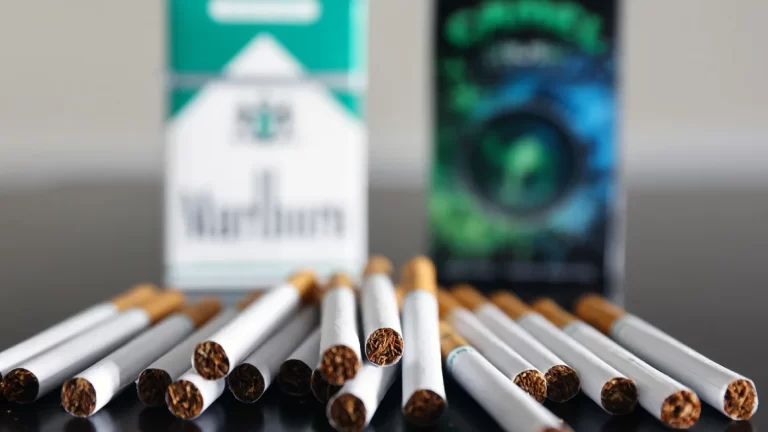A proposed ban on menthol cigarettes in the US “will take significantly more time,” US Health and Human Services Secretary Xavier Becerra said in a statement Friday, delaying a decision that had posed political risks for President Joe Biden as he runs for re-election.
“This rule has garnered historic attention and the public comment period has yielded an immense amount of feedback, including from various elements of the civil rights and criminal justice movement,” Becerra said. “It’s clear that there are still more conversations to have, and that will take significantly more time.”
An administration official declined to specify further what the current timeline for a final decision might be, saying there was a need to speak with more groups and work through the concerns that have been raised. “Hard to put a timeline on that,” the official said.
All flavors in cigarettes were banned in 2009, but menthol was left out after lobbying from the industry. The US Food and Drug Administration first said in April 2022 that it would ban the popular mint flavor, setting a deadline of August 2023. In October, the FDA sent final rules to the White House Office of Management and Budget for review, a key regulatory step. It’s still listed as “pending.”
The FDA had set a March deadline for action on the rule, but when there was no movement, a coalition of civil rights and medical organizations sued the agency this month. Menthol cigarettes have become a pivotal issue for Biden, who is facing an election year with concerns over a dropoff in turnout from Black voters.
Minority groups, especially Black people, have been aggressively targeted with menthol marketing by tobacco companies, according to the US Centers for Disease Control and Prevention, and menthol cigarettes have contributed to widened health disparities.
Some civil rights leaders with connections to the tobacco industry have expressed concerns to the White House that a ban would criminalize menthol cigarettes and lead to an increase in deadly police interactions. Meanwhile, the NAACP and the Congressional Black Caucus have endorsed the ban, along with dozens of public health experts, saying it would save hundreds of thousands of Black lives.
The FDA’s proposed rule would ban the manufacturing and sale of menthols but would not police smokers themselves.
Proponents of a ban said they’re disturbed by the delay.
Derrick Johnson, president of the NAACP, said in a statement Friday that the move is “a blow to the Black community, who continue to be unfairly targeted and unjustly killed by Big Tobacco. Let’s be clear – valuing Black lives should not be used as a pawn to get our people to the polls, but rather a platform that our leaders refuse to step down from. The NAACP is outraged and disgusted, but we refuse to be deterred.”
Nancy Brown, CEO of the American Heart Association, noted in a statement that it’s been two years since the administration released “proposed rules backed by extensive scientific evidence” and said that “inaction is enabling the tobacco industry to continue aggressively marketing these products and attracting and addicting new users.”
American Lung Association spokesperson Erika Sward said in a statement that the decision to delay action “is deeply troubling and does not reflect the science or the response from the civil rights community, including the NAACP, that these rules would save lives and prevent kids from starting to smoke. The Lung Association is deeply disturbed that President Biden has failed to do what he has promised, which is to follow the science and to reduce deaths and cancer.”
Dr. Mignonne Guy, a Virginia Commonwealth University associate professor and member of the FDA’s tobacco product advisory committee, called the delay “unconscionable” and said it was driven by politics.
“We have to question the judgment and the motives and incentives of the individuals that have purport themselves to represent Black communities when they oppose a ban that would save hundreds of thousands of lives now and in the future,” she said.
Cigarette smoking is the No. 1 cause of preventable death, disease and disability in the United States. It’s responsible for more than 480,000 deaths per year in the country – and it doesn’t just kill smokers. More than 41,000 people die in the US each year from exposure to secondhand smoke, according to the CDC.
A menthol ban could save up to 650,000 lives over the next 40 years, with a third of those lives saves among the Black community, according to the Campaign for Tobacco-Free Kids.


